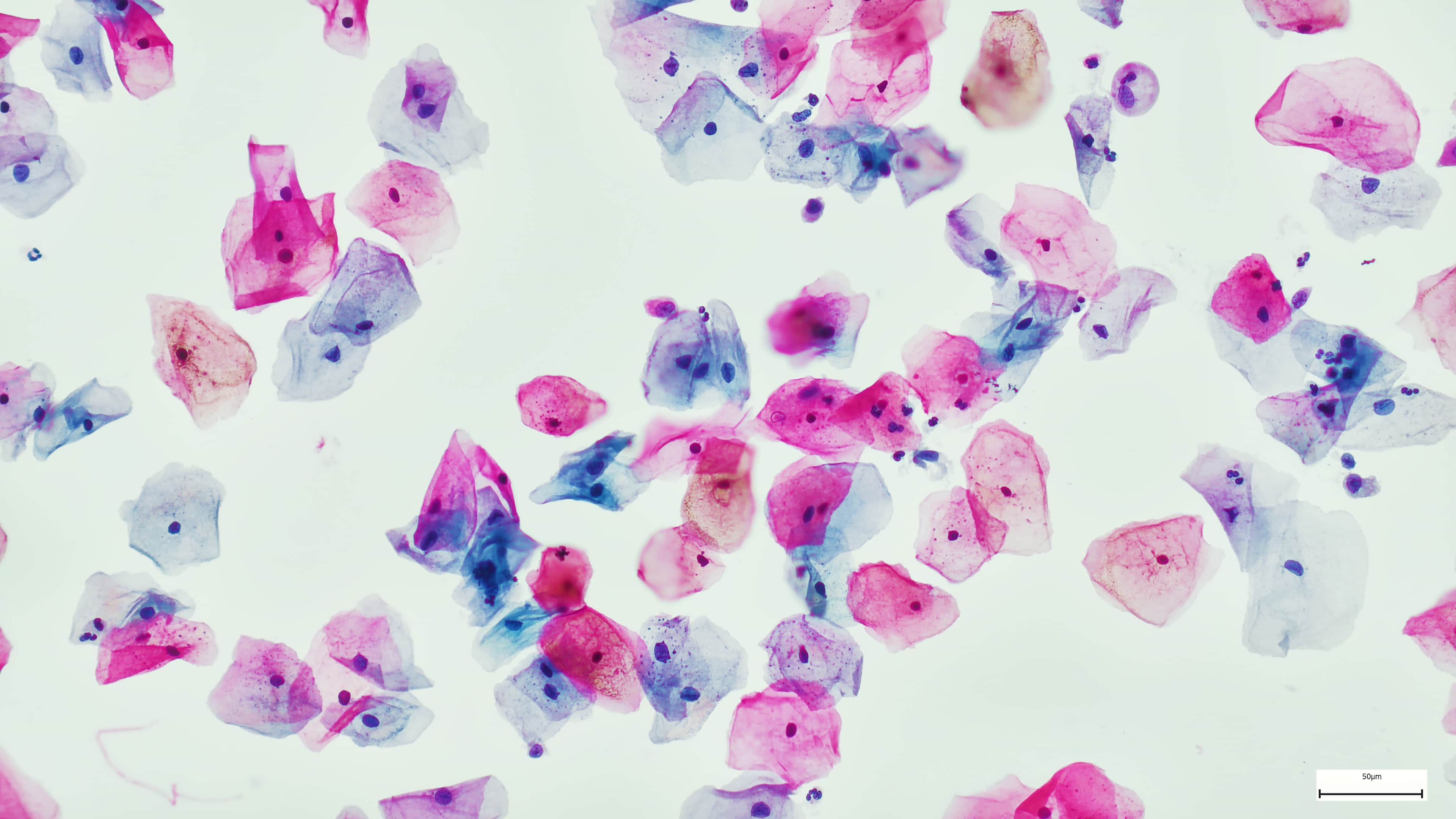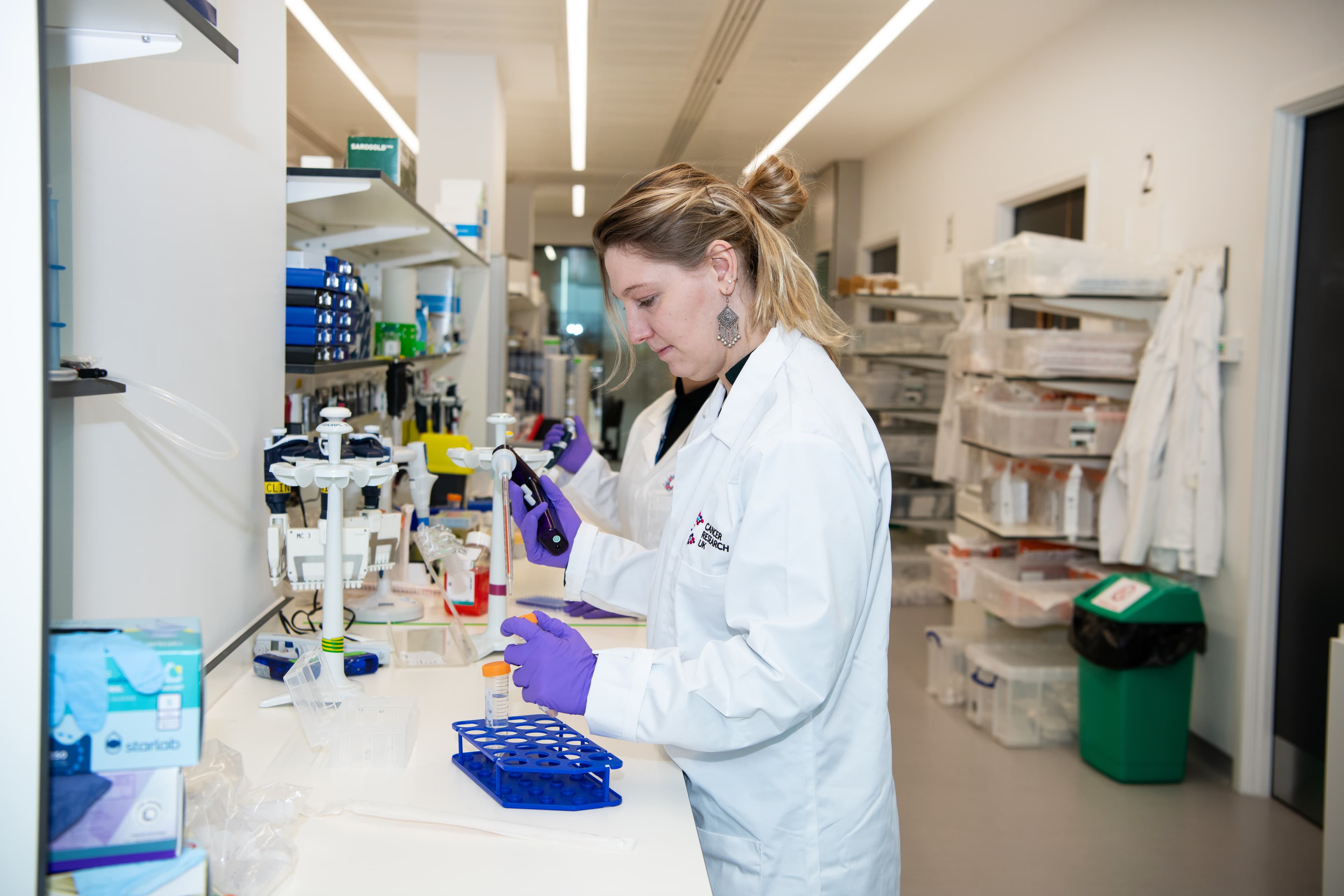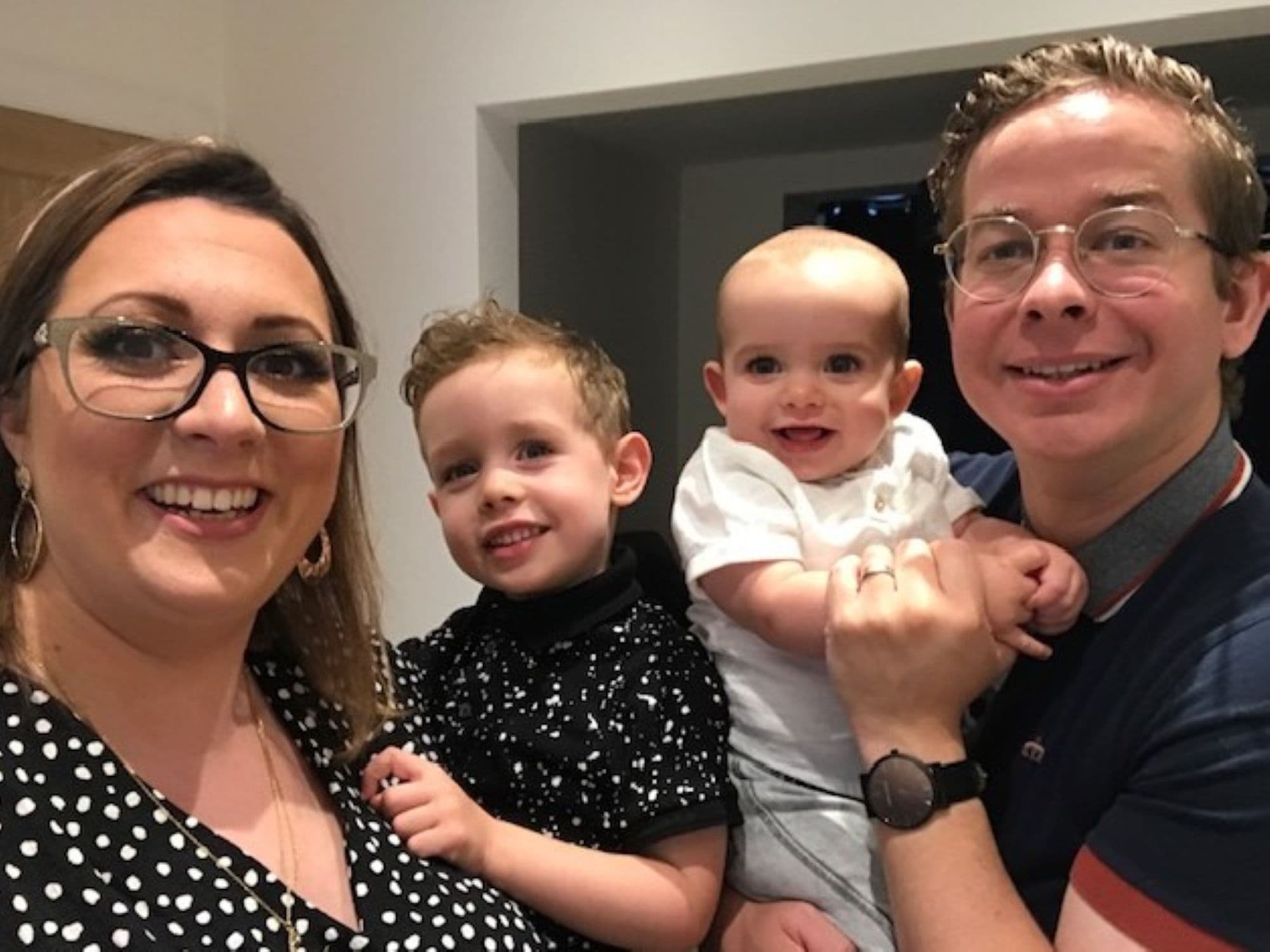
Research into cervical cancer has saved many thousands of lives through discovering new ways to prevent and diagnose the disease and developing better treatments.
We have a proven track record of propelling discoveries forwards. The human papillomavirus (HPV) vaccine and screening methods we helped develop are preventing thousands of deaths every year. Thanks to these advances, the World Health Organization has set an ambitious target to eliminate the disease globally as a public health problem. This is the first time the world has committed to a target like this.
We want to bring about a future where almost no-one develops cervical cancer. Where people in the UK and across the world can share in this progress equally regardless of who they are or where they’re from.
Read about our progress in beating cervical cancer
In London, Professor Maria Kyrgiou is trying to reduce the number of people who get treatment they don’t need after a positive HPV test. For most people, the virus causes no harm. So, her team are developing a fast, less invasive tests to determine which people with a positive HPV test have a high-risk strain that could lead to cancer and therefore require treatment. If successful, this research could lead to more people getting the treatment they need sooner and without the need for multiple tests.
Our scientists in London are moulding radiotherapy to match the unique cervical cancers of different patients. Using ultrasound imaging technologies to map the tumour, Dr Emma Harris can guide the delivery of precision radiotherapy and even understand how tumours respond. They hope this could let doctors adapt treatment to each individual, improving outcomes.
Read more about radiotherapy as a treatment option for cervical cancer
Our scientists are testing a new drug that might be able to turn on a ‘self-destruct mechanism’ in cancer cells in a trial. In Southampton, Professor Peter Hoskin is leading a clinical trial called CRAIN to test if this new drug could improve the effectiveness of existing treatments for cervical cancer. The hope is that when the cancer cells are damaged by the treatment the new drug will tip them over the edge, and the cancer cells will be more likely to die.
Get more information on the CRAIN trial
Professor Katie Robb in Glasgow is working with people with intellectual disabilities, their carers, and healthcare specialists to identify and overcome the barriers to screening that currently exist. Once complete, their research could inform government policies and improve access to screening, which could help save lives.
Learn more about cervical screening
Treating cancer is not just about survival – it’s also about quality of life. We want to find out if people with cervical cancer can safely have less extensive surgery, giving them the same chance of survival but with fewer long-term side-effects. Professor John Tidy and his team finished their clinical trial in December and are now busy analysing the results, that, if successful, could change how we treat people with cervical cancer.
Find out about the kinds of surgery that may be used to treat cervical cancer
Director of our Cancer Prevention Trials Unit in London, Peter is one of the researchers at the heart of beating cervical cancer today.
One of his current focusses is finding ways to improve cervical cancer screening. He’s looking to enhance access to existing screening programmes and will evaluate new screening methods, like self-sampling, that could help reduce inequalities in screening uptake and might be a better option for places with limited healthcare resources.
Excitingly, in 2021, research led by Professor Sasieni showed that the UK HPV vaccination programme works and will save lives. Results showed the vaccine dramatically reduced cervical cancer rates by almost 90% in women in their 20s who were offered it at ages 12 to 13.
Read more about Professor Sasieni’s landmark study

Tara was diagnosed with cervical cancer in 2015 and took part in the Cancer Research UK trial INTERLACE, which she was initially apprehensive about.
“For me, the words clinical trial meant doom and gloom, but I got it completely wrong. I was given a choice to do a trial and my clinical nurse Wendy was fantastic at explaining it to me. Now I really want to raise awareness about clinical trials as I loved being a part of one. My oncology team were amazing, and I felt very privileged to know that I was part of ground-breaking research."
Results from the INTERLACE trial show that giving cervical cancer patients a short course of chemotherapy before starting the standard treatment cuts the risk of death or of the disease returning by 40%.
Read more stories of people affected by cervical cancer

From studying the biology of cervical cancer cells in the lab to leading clinical trials testing cutting-edge treatments, our researchers are working hard to ensure more women survive cervical cancer.

Thanks to research, we've helped change the outlook for people with cervical cancer.

Meet people like Nicola who have experienced first-hand how our research is making a difference. The life-saving research we do wouldn’t be possible without your support.
Over the last 40 years, cancer survival in the UK has doubled. In the 1970s just 1 in 4 people survived their disease for 10 years or more. Today 2 in 4 survive.
We want to accelerate progress and see 3 in 4 patients surviving the disease by 2034.
Browse the latest news, analysis and opinion from Cancer Research UK.
Want to find more information about our research or cervical cancer?